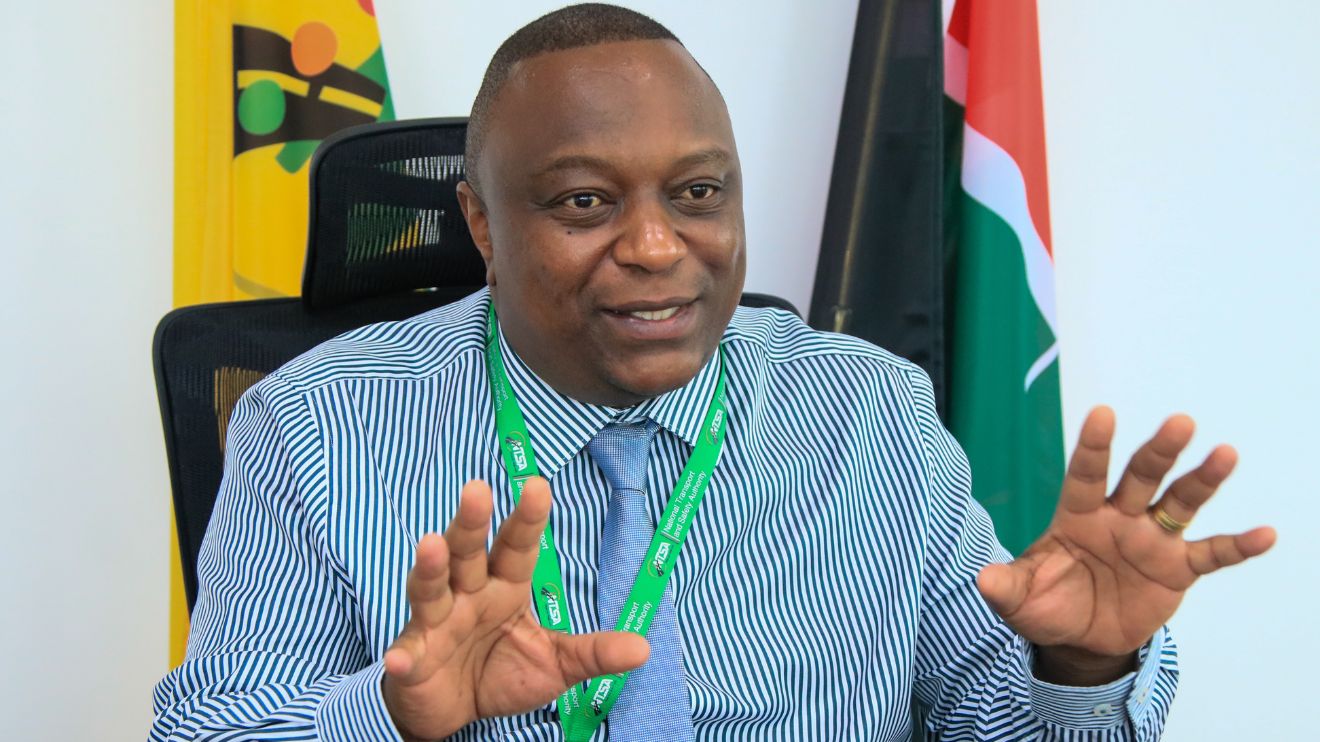NTSA releases 5,000 number plates after months of delays

The delay had caused major setbacks in the registration of imported vehicles
More than 5,000 vehicle number plates are now available for collection, the National Transport and Safety Authority (NTSA) has announced, in a move expected to ease the strain faced by second-hand car dealers due to prolonged delays.
This development follows strong criticism from the Kenya Auto Bazaar Association (KABA), which had blamed the authority for failing to issue new plates since April.
The delay had caused major setbacks in the registration of imported vehicles, leaving dealers grappling with financial penalties and logistical issues at the port.
NTSA Board Chair Khatib Mwashetani confirmed the delivery of the plates and urged vehicle owners who had received notifications to collect them from the offices where they made their applications.
"Motorists who have received text notifications are encouraged to collect their plates from the offices where they initially applied," he said.
For months, dealers have faced hurdles clearing vehicles at customs warehouses in Mombasa, with some paying up to Sh3,000 per day in penalties due to the lack of registration plates.
This has been a burden for many, especially those dealing in newly imported cars.
The shortage of number plates, which began in August last year, lasted nearly a month before steps were taken by the NTSA to address it.
Now, the authority says the situation has been resolved.
NTSA Director General George Njao sought to reassure both the public and motor vehicle dealers that the issue has been dealt with.
"The shortage that we experienced in the past few months has been fully addressed. We urge all clients to pick up their plates at the designated offices," Njao said.
KABA had earlier raised alarm over the continued delay in issuing new series of plates.
According to the group, the last batch distributed stopped at the 800 series, leaving plates for K, L, M, N, and P series unavailable.
"It has been over two weeks since the last batch of plates was released. The last series available went up to the 800 series, but there are still no plates for series K, L, M, N, and P," said KABA Secretary General Charles Munyori.
Regulations require all imported vehicles to be fitted with number plates before being released from the port.
With the plate shortage, many dealers and buyers have had to use temporary Kenya Dealers (KD) plates. These plates, however, are only valid between 6 am and 6 pm, causing further inconvenience.
In the past, the Kenya Revenue Authority (KRA) had allowed vehicles to leave the port without permanent plates as a temporary measure.
However, that option is no longer available, further pressuring car dealers who rely on timely registration to move vehicles from customs.
The responsibility of producing number plates lies with Kamiti Maximum Prison, which in recent months reported shortages of raw materials needed for production.
This contributed to the long wait experienced by dealers and buyers.
Prices for number plates currently range from Sh2,050 for the standard ones to Sh30,000 for special plates.
Customised plates can go for as much as Sh1 million.
The current shortage came just months after NTSA’s system was migrated to the eCitizen portal, which briefly disrupted registration and transfer services.
With the arrival of over 5,000 new plates, NTSA hopes that the backlog of unregistered vehicles will begin to clear, especially for second-hand dealers who have been among the hardest hit.
The industry is still recovering from challenges brought by the COVID-19 pandemic and recent currency fluctuations, making smooth vehicle clearance more important than ever.
Meanwhile, NTSA has stepped up efforts to strengthen road safety enforcement through a closer partnership with the Office of the Director of Public Prosecutions (ODPP).
Discussions between the two offices are focused on addressing the increasing number of traffic violations and accidents on the roads.
On Thursday, NTSA Chair Mwashetani held a meeting with Director of Public Prosecutions Renson Ingonga to discuss ways to improve the enforcement of traffic laws and enhance the use of digital tools to investigate and prosecute traffic offenses.
"We are committed to working together to reduce road carnage and improve accountability on our roads," said Ingonga.
As part of their agreement, the two institutions will enhance information sharing, provide additional training for enforcement officers, and invest in technology to support traffic investigations.
The goal is to improve how traffic offenses are handled and reduce the rising cases of road accidents.
